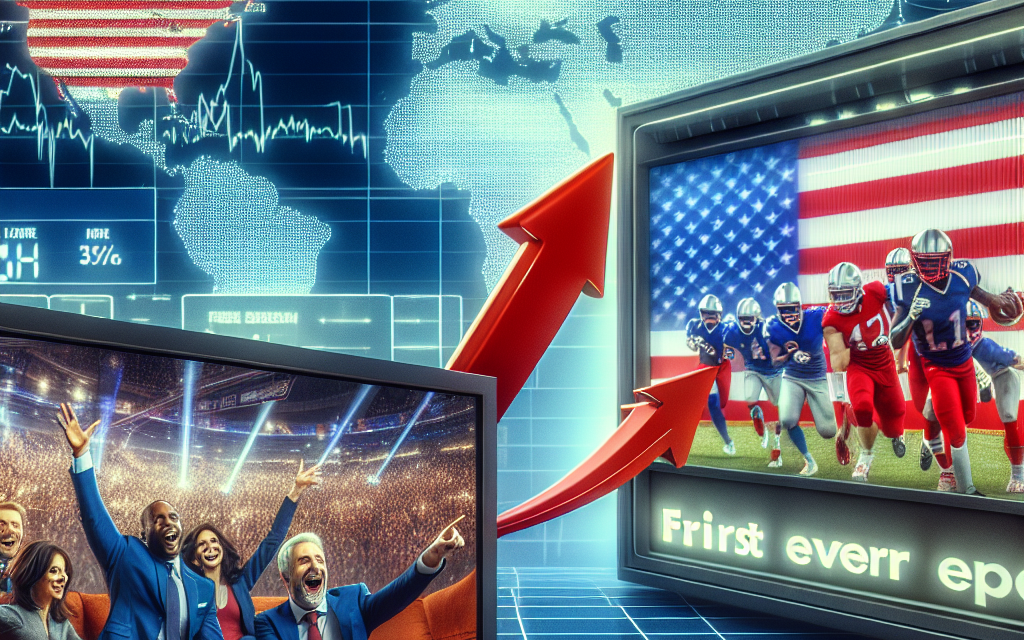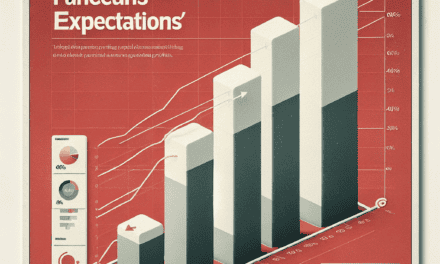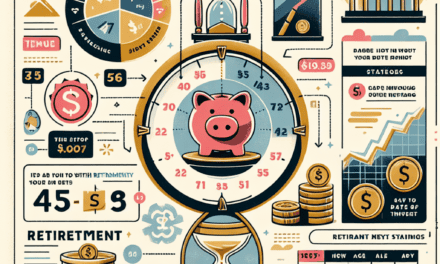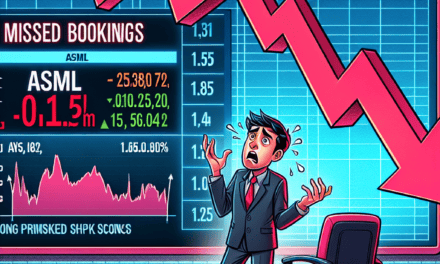“Bosch Goes Big: Shifting Gears to the U.S. Market with a Bold Super Bowl Debut!”
Introduction
Bosch, the renowned German multinational engineering and technology company, is shifting its strategic focus towards the U.S. market as it navigates economic challenges in Germany. This pivot is underscored by its decision to debut its first-ever Super Bowl advertisement, a significant move aimed at enhancing brand visibility and engagement in one of the world’s largest consumer markets. Amidst a backdrop of economic struggles in Germany, Bosch’s investment in high-profile marketing reflects its commitment to growth and innovation, seeking to capture the attention of American consumers and establish a stronger foothold in a competitive landscape.
Bosch’s Strategic Shift: Focusing on the U.S. Market
In a significant strategic pivot, Bosch, the renowned German multinational engineering and technology company, has decided to concentrate its marketing efforts on the U.S. market, marking a notable departure from its traditional focus. This shift is underscored by the company’s decision to debut its first-ever Super Bowl advertisement, a move that highlights its ambition to enhance brand visibility and consumer engagement in one of the world’s most competitive advertising arenas. The decision to invest in such a high-profile platform comes at a time when the German economy is grappling with various challenges, including sluggish growth and rising inflation. Consequently, Bosch’s leadership recognizes the necessity of diversifying its market presence to mitigate risks associated with its home market.
The U.S. market presents a wealth of opportunities for Bosch, particularly in sectors such as automotive technology, home appliances, and industrial automation. By targeting American consumers, Bosch aims to leverage the country’s robust economy and consumer spending power. The Super Bowl, known for its massive viewership and cultural significance, serves as an ideal launchpad for Bosch to introduce its innovative products and solutions to a broader audience. This strategic move not only aims to enhance brand recognition but also seeks to establish Bosch as a key player in the U.S. market, where competition is fierce and consumer preferences are rapidly evolving.
Moreover, Bosch’s decision to enter the Super Bowl advertising arena reflects a broader trend among international companies seeking to strengthen their foothold in the U.S. As American consumers increasingly prioritize technology-driven solutions, Bosch’s diverse portfolio aligns well with these preferences. The company’s commitment to sustainability and innovation resonates with a growing segment of environmentally conscious consumers, further positioning Bosch as a forward-thinking brand. By showcasing its cutting-edge technologies during one of the most-watched events in the country, Bosch hopes to capture the attention of potential customers and foster brand loyalty.
In addition to enhancing brand visibility, Bosch’s strategic shift also aims to address the economic challenges currently facing Germany. The German economy has been experiencing a slowdown, characterized by supply chain disruptions and rising energy costs. As a result, Bosch’s leadership is keenly aware of the need to explore new revenue streams and reduce dependence on the domestic market. By expanding its presence in the U.S., Bosch not only seeks to bolster its financial performance but also aims to create a more resilient business model that can withstand economic fluctuations.
Furthermore, this strategic shift is indicative of a broader trend among European companies reevaluating their market strategies in response to changing global dynamics. As geopolitical tensions and economic uncertainties continue to shape the business landscape, companies like Bosch are compelled to adapt and innovate. By prioritizing the U.S. market, Bosch is not only positioning itself for growth but also demonstrating its commitment to remaining competitive in an increasingly interconnected world.
In conclusion, Bosch’s decision to focus on the U.S. market through its inaugural Super Bowl advertisement represents a calculated response to both domestic economic challenges and the evolving landscape of consumer preferences. This strategic shift underscores the company’s commitment to innovation and sustainability while aiming to capture new market opportunities. As Bosch embarks on this new chapter, it will be interesting to observe how this bold move influences its brand perception and market share in the United States.
The Impact of Super Bowl Advertising on Brand Visibility
The Super Bowl, an annual sporting event that captivates millions of viewers across the globe, has long been recognized as a premier platform for brand visibility. Companies invest substantial resources into creating memorable advertisements that not only entertain but also resonate with a diverse audience. This year, Bosch, a renowned German multinational engineering and technology company, has made a significant move by launching its first-ever Super Bowl ad, signaling a strategic shift in its marketing focus towards the U.S. market. This decision comes at a time when the German economy faces various challenges, prompting Bosch to seek new avenues for growth and brand recognition.
The impact of Super Bowl advertising on brand visibility cannot be overstated. With an estimated viewership exceeding 100 million, the event offers an unparalleled opportunity for brands to reach a vast audience in a single broadcast. Advertisements aired during the Super Bowl often become cultural touchstones, sparking conversations and generating buzz long after the game concludes. This phenomenon is particularly beneficial for companies like Bosch, which may not have previously engaged with American consumers on such a grand scale. By entering the Super Bowl advertising arena, Bosch aims to elevate its brand profile and establish a stronger foothold in a competitive market.
Moreover, the nature of Super Bowl ads encourages creativity and innovation. Brands are compelled to produce high-quality, engaging content that captures the attention of viewers who are not only focused on the game but also on the commercials. This environment fosters a unique opportunity for Bosch to showcase its technological advancements and commitment to sustainability, themes that resonate with contemporary consumers. By crafting a compelling narrative that aligns with its core values, Bosch can effectively communicate its brand message while simultaneously enhancing its visibility.
In addition to immediate visibility, Super Bowl advertising can lead to long-term brand recognition. The memorable nature of these commercials often results in increased brand recall, as viewers associate the advertisement with the excitement of the event. This association can translate into consumer loyalty, as individuals are more likely to consider a brand they remember fondly when making purchasing decisions. For Bosch, this could mean not only attracting new customers but also reinforcing its existing relationships with consumers who value innovation and quality.
Furthermore, the ripple effect of Super Bowl advertising extends beyond the event itself. Social media platforms become a hotbed for discussions surrounding the ads, with viewers sharing their favorites and engaging in conversations about the brands. This digital engagement amplifies the reach of the advertisements, allowing Bosch to connect with audiences who may not have tuned in to the game. By leveraging social media, Bosch can further enhance its visibility and foster a sense of community among its consumers.
In conclusion, Bosch’s decision to debut its first Super Bowl ad represents a strategic pivot towards enhancing brand visibility in the U.S. market. The unique characteristics of Super Bowl advertising, including its vast reach, creative potential, and long-lasting impact, provide Bosch with an invaluable opportunity to connect with American consumers. As the company navigates the challenges posed by the German economic landscape, this bold move could prove instrumental in solidifying its presence in a key market, ultimately driving growth and innovation for the brand.
Analyzing Bosch’s First Super Bowl Ad: Key Messages and Themes
Bosch’s decision to debut its first Super Bowl advertisement marks a significant shift in its marketing strategy, particularly as the company navigates the complexities of the German economic landscape. This high-profile platform not only underscores Bosch’s commitment to the U.S. market but also serves as a critical opportunity to communicate its core values and innovative spirit to a broader audience. The ad encapsulates key messages that resonate with both current and potential consumers, emphasizing sustainability, technological advancement, and a commitment to quality.
At the heart of Bosch’s Super Bowl ad is a strong emphasis on sustainability, a theme that has become increasingly relevant in today’s consumer landscape. As environmental concerns continue to rise, Bosch positions itself as a leader in eco-friendly technology. The advertisement showcases various products that highlight the company’s dedication to reducing carbon footprints and promoting energy efficiency. By integrating these elements into its messaging, Bosch not only appeals to environmentally conscious consumers but also aligns itself with global trends that prioritize sustainability. This strategic focus is particularly important as the company seeks to differentiate itself in a competitive market.
Moreover, the ad effectively communicates Bosch’s commitment to innovation. Through visually striking imagery and compelling narratives, the advertisement illustrates how Bosch’s cutting-edge technologies enhance everyday life. From smart home devices to advanced automotive solutions, the ad highlights the seamless integration of technology into consumers’ lives, thereby reinforcing Bosch’s reputation as a pioneer in the industry. This focus on innovation is crucial, especially as the company aims to capture the attention of a tech-savvy audience that values modern solutions to everyday challenges.
In addition to sustainability and innovation, the advertisement also underscores Bosch’s dedication to quality. The narrative conveys a sense of reliability and trustworthiness, attributes that are essential for building long-term relationships with consumers. By showcasing the durability and performance of its products, Bosch aims to instill confidence in potential buyers, encouraging them to choose Bosch over competitors. This emphasis on quality is particularly pertinent in the U.S. market, where consumers often prioritize brand reputation and product reliability when making purchasing decisions.
Furthermore, the ad strategically leverages emotional storytelling to create a connection with viewers. By featuring relatable scenarios that depict families and individuals benefiting from Bosch’s products, the advertisement fosters a sense of community and belonging. This approach not only humanizes the brand but also encourages consumers to envision how Bosch’s innovations can enhance their own lives. The emotional resonance of the ad is likely to leave a lasting impression, making it more memorable in the minds of viewers.
As Bosch navigates the challenges posed by the German economic situation, its first Super Bowl ad serves as a pivotal moment in redefining its brand narrative in the U.S. market. By focusing on sustainability, innovation, and quality, Bosch effectively communicates its core values while appealing to the evolving preferences of consumers. The emotional storytelling woven throughout the advertisement further enhances its impact, creating a compelling case for why Bosch should be a top choice for consumers seeking reliable and innovative solutions. In conclusion, Bosch’s strategic pivot towards the U.S. market, exemplified by its Super Bowl debut, not only reflects its adaptability but also its commitment to fostering meaningful connections with consumers in an increasingly competitive landscape.
Economic Challenges in Germany: How They Affect Global Brands
As Germany grapples with a series of economic challenges, the implications for global brands are becoming increasingly evident. The nation, once a bastion of economic stability and growth, is now facing a confluence of factors that threaten its industrial might and, by extension, the performance of its multinational corporations. High inflation rates, energy crises exacerbated by geopolitical tensions, and a sluggish manufacturing sector have all contributed to a climate of uncertainty. This environment not only affects domestic companies but also reverberates across the global marketplace, influencing how brands position themselves and strategize for future growth.
In this context, Bosch, a leading German multinational engineering and technology company, has made a significant pivot in its marketing strategy. The decision to debut its first-ever Super Bowl advertisement is emblematic of a broader trend among German brands seeking to recalibrate their focus towards more lucrative markets, particularly the United States. This shift is not merely a marketing maneuver; it reflects a strategic response to the economic headwinds faced in Germany. As the domestic market becomes increasingly challenging, companies like Bosch are recognizing the necessity of diversifying their outreach and tapping into the robust consumer base of the U.S.
Moreover, the economic struggles in Germany have led to a reevaluation of investment priorities among global brands. With rising costs and a competitive landscape, companies are compelled to seek opportunities beyond their traditional markets. The U.S. offers a dynamic environment characterized by consumer spending power and a culture that embraces innovation. By investing in high-profile advertising campaigns, Bosch aims to enhance brand visibility and connect with American consumers, thereby offsetting potential losses in its home market.
Transitioning from a focus on local markets to a more global perspective is not without its challenges. German brands must navigate cultural differences, regulatory environments, and varying consumer preferences. However, the potential rewards are significant. By establishing a strong presence in the U.S., Bosch can leverage its reputation for quality and innovation to capture market share in a competitive landscape. This strategic pivot is indicative of a broader trend among German companies, which are increasingly recognizing the need to adapt to changing economic realities.
Furthermore, the economic challenges in Germany have prompted a reevaluation of supply chains and operational efficiencies. As companies face rising energy costs and supply chain disruptions, there is a growing emphasis on sustainability and resilience. Bosch, for instance, is likely to incorporate these principles into its marketing narrative, appealing to environmentally conscious consumers in the U.S. market. This alignment with global sustainability trends not only enhances brand reputation but also positions Bosch as a forward-thinking leader in technology and engineering.
In conclusion, the economic challenges currently facing Germany are reshaping the strategies of its global brands. As companies like Bosch shift their focus to the U.S. market, they are not only responding to immediate economic pressures but also positioning themselves for long-term growth. This strategic pivot underscores the interconnectedness of global markets and the necessity for brands to remain agile in the face of evolving economic landscapes. By embracing new opportunities and adapting to changing consumer dynamics, German companies can navigate the complexities of the current economic climate while continuing to thrive on the global stage.
The Role of American Consumers in Bosch’s Marketing Strategy
As Bosch navigates the complexities of the global market, its recent decision to shift focus towards the U.S. consumer landscape marks a significant pivot in its marketing strategy. This move is particularly noteworthy given the backdrop of economic challenges in Germany, where the company is headquartered. By launching its first-ever Super Bowl advertisement, Bosch aims to capture the attention of American consumers, recognizing their pivotal role in driving brand awareness and sales growth in a competitive environment.
American consumers are known for their diverse preferences and high expectations, which makes them a critical audience for any global brand. Bosch’s marketing strategy is increasingly tailored to resonate with this demographic, emphasizing innovation, quality, and sustainability—values that align closely with the interests of U.S. consumers. The Super Bowl, as one of the most-watched sporting events in the country, provides an unparalleled platform for Bosch to showcase its commitment to these principles. By investing in such a high-profile advertisement, Bosch not only seeks to enhance its visibility but also to establish a deeper emotional connection with potential customers.
Moreover, the U.S. market presents unique opportunities for Bosch, particularly in sectors such as home appliances, automotive technology, and industrial solutions. American consumers are increasingly inclined towards smart home technologies and energy-efficient products, areas where Bosch has made significant advancements. By highlighting these innovations in its marketing campaigns, Bosch can effectively position itself as a leader in providing solutions that meet the evolving needs of American households and businesses. This strategic alignment with consumer trends is essential for Bosch to gain traction in a market characterized by rapid technological advancements and shifting consumer behaviors.
In addition to product innovation, Bosch’s marketing strategy also emphasizes the importance of brand storytelling. By crafting narratives that resonate with American values—such as reliability, sustainability, and community engagement—Bosch can foster a sense of loyalty among consumers. This approach not only enhances brand recognition but also encourages word-of-mouth marketing, which is particularly influential in the U.S. market. As consumers increasingly seek brands that reflect their own values and lifestyles, Bosch’s commitment to sustainability and social responsibility can serve as a powerful differentiator.
Furthermore, Bosch’s engagement with American consumers extends beyond traditional advertising. The company is increasingly leveraging digital marketing channels to reach a broader audience. Social media platforms, in particular, allow Bosch to interact directly with consumers, gather feedback, and tailor its offerings to meet specific needs. This two-way communication fosters a sense of community and belonging, which is vital for building long-term relationships with customers.
In conclusion, Bosch’s strategic shift towards the U.S. market, highlighted by its inaugural Super Bowl advertisement, underscores the importance of American consumers in its overall marketing strategy. By focusing on innovation, sustainability, and effective brand storytelling, Bosch aims to resonate with this critical audience. As the company navigates the challenges posed by economic fluctuations in Germany, its commitment to understanding and engaging with American consumers will be essential for driving growth and establishing a strong foothold in one of the world’s most dynamic markets. Ultimately, this approach not only positions Bosch for success in the U.S. but also reinforces its global brand identity as a leader in technology and innovation.
Comparing Bosch’s U.S. and German Market Strategies
Bosch, a global leader in technology and services, has recently made a significant pivot in its marketing strategy, particularly in light of the economic challenges facing Germany. The company’s decision to debut its first Super Bowl advertisement marks a notable shift in focus towards the U.S. market, a move that reflects both the opportunities present in the American economy and the struggles that have beset its home market. This strategic realignment invites a comparison between Bosch’s approaches in the U.S. and Germany, revealing distinct methodologies tailored to the unique characteristics of each market.
In the United States, Bosch has historically positioned itself as a premium brand, emphasizing innovation and quality across its diverse product lines, which include automotive components, home appliances, and industrial technology. The U.S. market, characterized by a consumer base that values cutting-edge technology and reliability, has allowed Bosch to leverage its reputation for engineering excellence. By investing in high-profile advertising events like the Super Bowl, Bosch aims to enhance brand visibility and connect with a broader audience. This approach not only seeks to attract new customers but also reinforces loyalty among existing ones, as the company showcases its commitment to innovation and sustainability.
Conversely, Bosch’s strategy in Germany has been shaped by a different set of economic realities. The German market, while still robust, has faced significant challenges, including supply chain disruptions and rising energy costs. These factors have prompted Bosch to adopt a more conservative marketing approach domestically, focusing on maintaining its established customer base rather than aggressively pursuing new market segments. In Germany, Bosch emphasizes its heritage and reliability, often highlighting its long-standing commitment to quality and local manufacturing. This strategy resonates with German consumers, who tend to prioritize brand loyalty and local production over the allure of flashy advertising.
Moreover, the contrasting economic landscapes of the U.S. and Germany necessitate different marketing tactics. In the U.S., where consumer spending is often driven by trends and brand engagement, Bosch’s foray into high-impact advertising is a calculated risk aimed at capturing the attention of a diverse audience. The Super Bowl, known for its massive viewership and cultural significance, provides an ideal platform for Bosch to showcase its innovative products and reinforce its brand identity. This bold move is indicative of a broader trend among companies seeking to capitalize on the dynamic nature of the American consumer market.
In contrast, Bosch’s German strategy is more focused on resilience and adaptation. The company has been investing in digital transformation and sustainability initiatives, aligning its marketing efforts with the growing consumer demand for environmentally friendly products. By emphasizing these values, Bosch aims to strengthen its position in a market that is increasingly conscious of ecological impact. This dual focus on innovation and sustainability reflects a nuanced understanding of the German consumer landscape, where brand trust and ethical considerations play a crucial role in purchasing decisions.
Ultimately, Bosch’s shift towards the U.S. market through its Super Bowl advertisement signifies a strategic response to the economic challenges in Germany while simultaneously seizing opportunities in a thriving American economy. By comparing the distinct strategies employed in these two markets, it becomes evident that Bosch is not only adapting to current economic conditions but also positioning itself for future growth. This dual approach underscores the importance of flexibility and responsiveness in today’s global marketplace, as companies navigate the complexities of diverse consumer landscapes.
Future Implications of Bosch’s U.S. Focus on Global Operations
Bosch’s strategic pivot towards the U.S. market, highlighted by its debut Super Bowl advertisement, signals a significant shift in the company’s global operations. This move comes at a time when the German economy faces various challenges, including inflation and supply chain disruptions, prompting Bosch to reassess its priorities and explore new avenues for growth. By focusing on the U.S. market, Bosch aims to tap into a robust consumer base and capitalize on the increasing demand for innovative technologies, particularly in the automotive and home appliance sectors.
The implications of this shift are multifaceted. Firstly, Bosch’s increased investment in the U.S. could lead to enhanced brand visibility and recognition in a highly competitive landscape. The Super Bowl, known for its massive viewership, provides an unparalleled platform for companies to showcase their products and values. By leveraging this opportunity, Bosch not only aims to attract new customers but also to reinforce its commitment to innovation and sustainability, which are increasingly important to American consumers. This strategic marketing approach may help Bosch differentiate itself from competitors and establish a stronger foothold in the North American market.
Moreover, Bosch’s focus on the U.S. could influence its global supply chain dynamics. As the company seeks to localize production and reduce dependency on European manufacturing, it may invest in new facilities or partnerships within the U.S. This shift could lead to job creation and economic stimulation in the regions where these operations are established. Additionally, by diversifying its manufacturing base, Bosch can mitigate risks associated with geopolitical tensions and trade policies that have historically impacted its operations in Europe.
Transitioning to a more U.S.-centric approach also raises questions about Bosch’s long-term strategy in its home market. While the company has deep roots in Germany, the economic challenges it faces may necessitate a reevaluation of its priorities. By reallocating resources and focusing on the U.S., Bosch could potentially enhance its overall resilience. However, this strategy must be balanced with maintaining a strong presence in Europe, where the company has established significant brand loyalty and market share.
Furthermore, Bosch’s emphasis on the U.S. market may lead to increased competition with local players. As the company seeks to expand its footprint, it will need to navigate the complexities of the American market, which includes understanding consumer preferences and regulatory requirements. This competitive landscape could drive Bosch to innovate more rapidly, fostering a culture of agility and responsiveness that may benefit its global operations.
In conclusion, Bosch’s shift towards the U.S. market, exemplified by its first Super Bowl ad, reflects a strategic response to the current economic climate in Germany and the broader global landscape. This focus not only aims to enhance Bosch’s market presence in North America but also has the potential to reshape its global operations. By investing in local production and adapting to consumer demands, Bosch can position itself for sustainable growth while navigating the challenges of an evolving economic environment. As the company embarks on this new chapter, the outcomes of its U.S. strategy will likely have lasting implications for its global operations and overall market positioning.
Q&A
1. **What is Bosch’s recent marketing strategy?**
Bosch is shifting its focus to the U.S. market by launching its first Super Bowl ad.
2. **Why is Bosch focusing on the U.S. market?**
The company is responding to economic struggles in Germany and seeking growth opportunities in the U.S.
3. **What is significant about Bosch’s Super Bowl ad?**
It marks Bosch’s first-ever advertisement during the Super Bowl, highlighting its commitment to the U.S. market.
4. **What challenges is Bosch facing in Germany?**
Bosch is dealing with economic difficulties, including inflation and reduced consumer spending in Germany.
5. **What products or services is Bosch promoting in the U.S.?**
The ad likely focuses on Bosch’s home appliances, automotive technology, and industrial products.
6. **How does Bosch’s strategy reflect broader trends in the market?**
It illustrates a trend of companies diversifying their markets in response to local economic challenges.
7. **What impact could this ad have on Bosch’s brand perception in the U.S.?**
The Super Bowl ad could enhance brand visibility and strengthen Bosch’s presence in the competitive U.S. market.
Conclusion
Bosch’s decision to shift its focus to the U.S. market and debut its first Super Bowl ad reflects a strategic response to the challenges posed by the German economic landscape. By leveraging the high visibility of the Super Bowl, Bosch aims to enhance brand recognition and capture a larger share of the American consumer market, positioning itself for growth despite domestic economic difficulties. This move underscores the company’s adaptability and commitment to expanding its global presence in a competitive environment.





